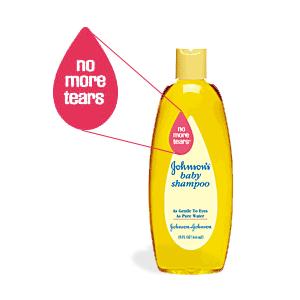|
|
No More Tears, But Perhaps A Little Cancer
Posted by Pile
(22511 views) |
[Faulty Products] |
 More than half the baby shampoo, lotion and other infant care products analyzed by a health advocacy group were found to contain trace amounts of two chemicals that are believed to cause cancer. More than half the baby shampoo, lotion and other infant care products analyzed by a health advocacy group were found to contain trace amounts of two chemicals that are believed to cause cancer.Some of the biggest names on the market, including Johnson & Johnson Baby Shampoo and Baby Magic lotion, tested positive for 1,4-dioxane or formaldehyde, or both, the nonprofit Campaign for Safe Cosmetics reported. | |
The chemicals, which the Environmental Protection Agency has characterized as probable carcinogens, are not intentionally added to the products and are not listed among ingredients on labels. Instead, they appear to be byproducts of the manufacturing process. Formaldehyde is created when other chemicals in the product break down over time, while 1,4-dioxane is formed when foaming agents are combined with ethylene oxide or similar petrochemicals. The organization tested baby bath products such as bubble bath and shampoo. * 17 out of 28 products tested ? 61 percent ? contained both formaldehyde and 1,4-dioxane. * 23 out of 28 products ? 82 percent ? contained formaldehyde at levels ranging from 54 to 610 parts per million (ppm). * 32 out of 48 products ? 67 percent ? contained 1,4-dioxane at levels ranging from 0.27 to 35 ppm. While a single product might not be cause for concern, the reality is that babies may be exposed to several products at bath time, several times a week, in addition to other chemical exposures in the home and environment. Those small exposures add up and may contribute to later-life disease. Formaldehyde and 1,4-dioxane are known carcinogens; formaldehyde can also trigger skin rashes in some children. Unlike many other countries, the U.S. government does not limit formaldehyde, 1,4-dioxane, or most other hazardous substances in personal care products. "Our intention is not to alarm parents, but to inform parents that products that claim to be gentle and pure are contaminated with carcinogens, which is completely unnecessary," said Stacy Malkan, a spokeswoman for the Campaign for Safe Cosmetics, which is calling for the government to more strictly regulate personal care products such as shampoo, lotion and makeup. Where They Come From The chemicals were not disclosed on product labels because they're contaminants, not ingredients, and therefore are exempt from labeling laws. Formaldehyde contaminates personal care products when common preservatives release formaldehyde over time in the container. Common ingredients likely to contaminate products with formaldehyde include quaternium-15, DMDM hydantoin, imidazolidinyl urea and diazolidinyl urea. 1,4-dioxane is a byproduct of a chemical processing technique called ethoxylation, in which cosmetic ingredients are processed with ethylene oxide. Manufacturers can easily remove the toxic byproduct, but are not required by law to do so. Common ingredients likely to be contaminated with 1,4-dioxane include PEG-100 stearate, sodium laureth sulfate, polyethylene and ceteareth-20. What You Can Do Contrary to industry statements, there are no regulatory standards that limit formaldehyde, 1,4-dioxane or most other toxic chemicals in personal care products sold in the United States. There are signs the U.S. is gearing to catch up, but for now it's up to consumers to consider carefully before they buy. Here's some suggestions for safeguarding your family's health: * Simplify: Select products with fewer ingredients and no synthetic fragrance or dyes, and use fewer products overall. * Choose safety: Search EWG's cosmetic safety database, Skin Deep, to learn more about the products you use and find safer alternatives. Also check out EWG's Safety Guide to Children?s Personal Care Products. * Read labels: Select products for baby and yourself that don't contain the ingredients listed above, which are commonly contaminated with formaldehyde or 1,4-dioxane. * Take action! Can't memorize these lists? Nobody can. If harmful contaminants and ingredients weren't allowed in products, you wouldn't have to. Tell Congress you want safe cosmetics for babies, adults and everyone in between. * Spread the word: Send an e-card letting friends and family know about this report. | |
Details | |
| 1 Article displayed. |


 Bumper Sticker Store
Bumper Sticker Store



